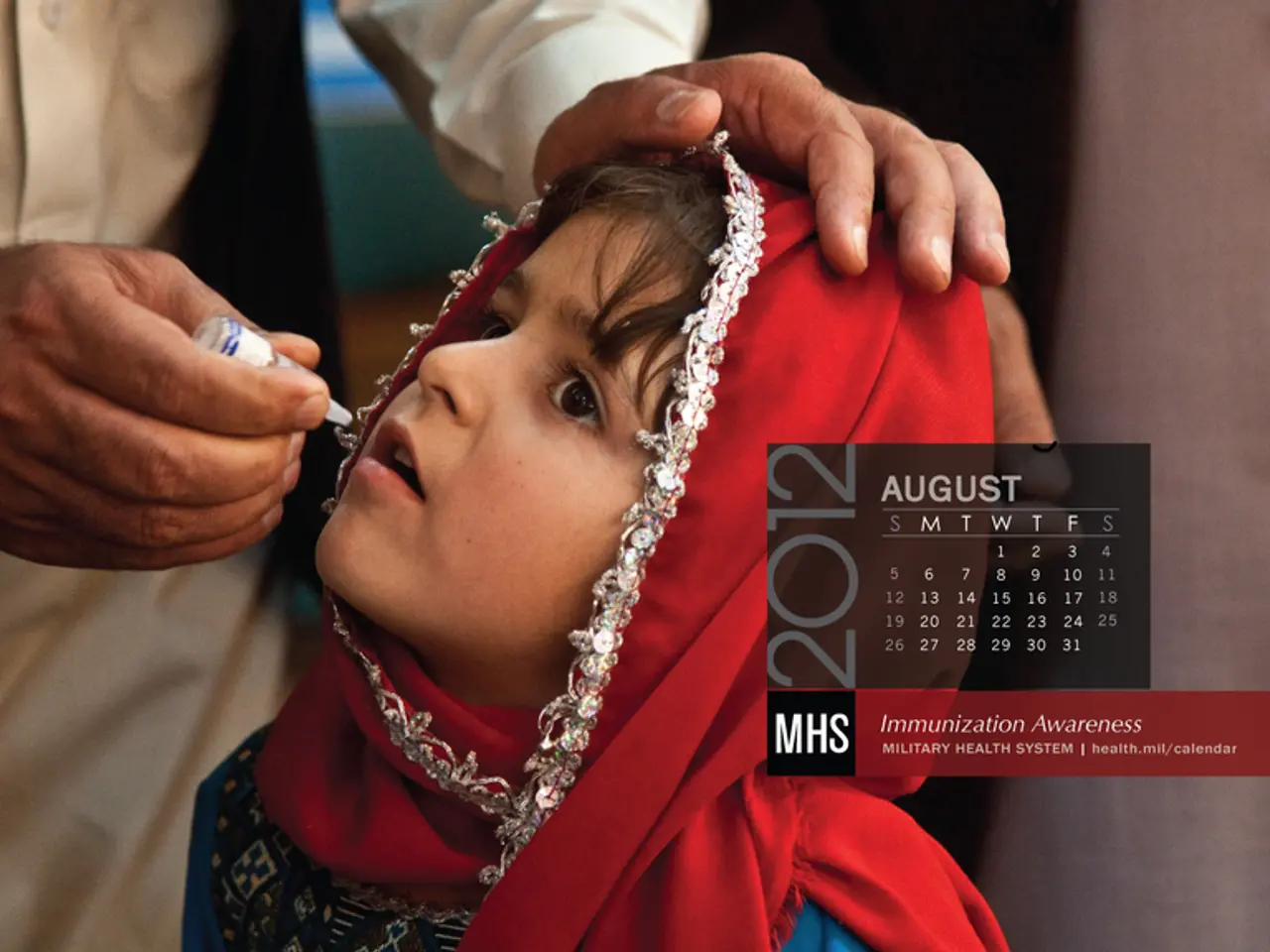Unwavering skepticism towards vaccines sparks outbreak of pertussis in North Macedonia
In North Macedonia, a whooping cough epidemic has been declared in the capital city of Skopje, as the Institute for Public Health of the Republic of North Macedonia reported 28 cases of pertussis (whooping cough) between January 1 and February 14, 2024. This marks a concerning increase in the number of cases, particularly in light of the region and Europe experiencing similar outbreaks and a rise in cases.
The DTaP vaccine, given five times in childhood, is considered essential for protection against whooping cough. However, the latest report from the Institute for Public Health states that the primary vaccination coverage for Hepatitis B, Haemophilus influenzae type B, DTaP/IPV, MRP, and HPV is below 90 percent at the national level. The primary vaccination coverage with three doses of the vaccine against HiB, DTaP and IPV for 2022 was 83.9 percent, with lower coverage in several territories, such as Kumanovo, where the coverage was only 53.7 percent.
Epidemiologists warn that unvaccinated children should not attend kindergarten to avoid epidemics. This is especially important as the vaccine is mandatory for attendance in kindergarten. In 2022, 3,322 children were not vaccinated, with 41 percent (1,368) from Skopje and 27.4 percent (910) from Kumanovo. Skopje has a low percentage of vaccinations, particularly in the urban municipalities Centar and Karpos.
The revaccination coverage with DTaP/IPV among seven-year-old school children in North Macedonia is 88.5 percent, an increase from 2020 (87.3 percent) and 2021 (74.7 percent). Similarly, the revaccination coverage with DTaP/IPV among 14-year-old school children is 89.3 percent, an improvement from 2020 (80.3 percent) and 2021 (85.9 percent), but it is still below 90 percent.
The Public Health Institute has published information related to whooping cough, stating that it can cause brain damage, pneumonia, inflammation of the middle ear, loss of appetite, dehydration, convulsions, hernias, fractures in the chest area, prolapse of the colon, and episodes of respiratory arrest. Whooping cough causes serious complications and sometimes even death in children under one year of age. One-third of the children under one year of age who get sick with whooping cough need hospital treatment. The most common complications are apnea (life-threatening cessation of breathing), pneumonia (inflammation of the lungs), convulsions, encephalopathy (brain damage), and every 100th patient may die.
Dr. Kristina Stavridis from the Public Health Institute advises parents to check their children's vaccination cards and immediately call the vaccination center if a dose is missed or their child has not been vaccinated at all. It is crucial for parents to ensure their children are up-to-date with their vaccinations to protect them from preventable diseases like whooping cough.
Despite the efforts to increase vaccination coverage, the availability of pertussis vaccines in North Macedonia remains unclear. The available search results do not provide specific information about who supplies pertussis vaccines in North Macedonia or whether these vaccines are available in sufficient quantity. Regular vaccination campaigns in villages were conducted in the past to ensure coverage, but the current situation requires more concerted efforts to reach the 90 percent vaccination coverage target.
Read also:
- Nightly sweat episodes linked to GERD: Crucial insights explained
- Antitussives: List of Examples, Functions, Adverse Reactions, and Additional Details
- Asthma Diagnosis: Exploring FeNO Tests and Related Treatments
- Unfortunate Financial Disarray for a Family from California After an Expensive Emergency Room Visit with Their Burned Infant








